"Sport & Physical Activity for Mental Health: From Theory to Practice"
Dear guests
Dear representatives of the official sector
Dear representatives of cooperating organisations
Dear participants
I would like to thank you for your presence here today and your strong interest for the works of the Conference and the overall initiative of Active Living for Mental Health.
It is actually an important moment for all of us, almost two years of hard work, this journey has reached its final phase having provided such significant results.
And this very moment is an opportunity not only to present and reflect on the outcomes of this effort, but also to plan steps forward, towards our common goal. And what is this goal? The improvement of mental health services and the prevention of mental health disorders, for the benefit of the users as well as the population in general. And, as from our point of view, the means to achieve this goal is sport and physical exercise.
But it’s not a Conference targeting psychiatrists or psychologists or sport scientists or kynesiologists or policy makers or any other related groups. It is a Conference designed for all of them, upon an intersectoral and multidisciplinary framework that derives from a holistic approach for mental health.
Intersectoral because it extends in the fields of sport /physical exercise, - mental health and human rights
Multidisciplinary because it brings together psychology, psychiatry, sport science, sociology, law, public administration, community development and many other sectors, in order to achieve an integrated approach for prevention, therapy and rehabilitation as well as combating stigma related to mental disorders.
If it is so, which is the theory we are based on?
A rich theoretical background is available. We start with the existing scientific literature.
A list of 350 collected researches, studies and published articles but also an ongoing enriching process of this material, provides the necessary documentation for the justified connection of the two fields.
The most recent contribution is the collective endeavor titled “12 Policy Papers”, an outcome of the MENS project, the twin sibling of the present EVENTS project.
In this collective endeavor a Panorama on respective policies’ evolution at EU level since 2000, a graphic created by Eleanora Markou and Pantelis Sarakiniotis, authors of the of the 1st Policy Paper.
Following this line and taking into consideration the limitations for the Conference organisation a small number of selected research results and scientific evidence will be presented within the two sessions of the scientific part of the Conference.
Thus, we feel much honored to welcome:
- DR. Ekkekakis Panteleimon, Professor to the Department of Kinesiology, Iowa State University, USA and Chair of the Scientific Committee of our Conference.
“Exercise as antidepressant treatment: Progress, challenges and prospects”.
- Ms. Komanthi Kouloutbani, Doctorate candidate of UOA
“Physical activity and mental health –review of literature”
- Dr. Ioannis Morres, University of Thessalia – Post Doctorate Researcher.
“Exercise for clinical depression. Towards exercise on prescription in Greece”
Before moving to the next part I have to make a short reference to Research and education as quite often stands somewhere between the two poles: Research provides the foundations to the theory while Education is a high form of practice.
So, within this Conference an advanced Workshop has been delivered just few hours ago by Professor Ekkekakis to post graduate students and other participants under the title “Learn to critically appraise Randomized Controlled Trials and Meta-Analyses: Focus on studies examining the effects of exercise on depression”
Towards the Education direction you will have also the opportunity for a short presentation of the recently approved new project of EDRA, leading a group of organisations from 6 EU member states. The project aims at the development of “Advanced Skills for Active Living” as the project title indicates
What is the practice we refer on?
Personal testimonies on the use of sport and physical exercise in order to address mental disorders. We’ll have the opportunity to witness such an experience in the presentation “Mental health and physical activity: swimming in unchartered waters” of from Chrysostomos Giannoulakis, Dr. of Sport Management.
A very special contribution, due to the fact that it combines an experiential approach supported by an extended scientific documentation.
The applied Model by the “Medicine-free Clinique” of Asgard University Hospital of North Norway. In her respective presentation, “Medication free treatment. Implementing Physical activity and art therapy in treatment. Experiences and possibilities” Mrs Marianne Viberg, will share with as an avant-guard approach in terms of public mental health systems which will offer plenty of food for thoughts.
The related activities developed so far by the organisations, which took part in the MENS and EVENTS Projects. We are excited to have you all with us here today and we are sure that this excellent cooperation will expand further more from now on.
And last but not least the “1st European Sport & Physical Exercise Event for Mental Health” that took place in Athens 33 day ago.
A full presentation of the sport event is scheduled for tomorrow for the people who haven’t had the chance and the pleasure to experience this unique moment.
But which is the specific significance of this event? What are the new aspects that this initiative introduces?
*For the first time a sport event exclusively focus on physical exercise for mental health.
Up to now the connection between the fields of Physical Exercise / Sport and Mental Health was not covered through the already established sport procedures as these refer either to physical disabilities or to mental retardation. So any related attempts so far to gather situations quite different were no evidence based and without the necessary scientific elaboration.
Main reasons for this distinction are the following:
- A mental disorder isn’t necessarily a disability, as a mental patient may be fully functional in the broader context of social life.
- A mental disorder is often temporary.
- Prevention doesn’t apply as a term in situations such as the ones mentioned above, yet it plays a significant role in the field of Mental Health.
- The mentally ill are often victims of stigma and discrimination, whose nature usually leads away from the acceptance of the problem, a condition of poor application in the above mentioned disabilities.
The two last reasons permit or even attract the participation of the general population, in sports and physical activities together with people experiencing mental health issues, something that can’t happen in the current forms of sport activities for disabled people.
As a result of this insufficient approach up to now, 83.000.000 Europeans ( 1 to 6.5) stand excluded (figures provided by WHO- Europe concerning the population which experienced at least one of a series of mental disorders in the past year not including the group over 65, although it is a group at particular risk).
So we march the first steps of an emerging movement because without this approach we can’t vision the enrichment of the existing therapeutic schemes, nor effectively address stigma or the development of an integrated prevention process.
*For the first time an event of European dimension.
If there are other similar organisations, they are surely limited just
in local level, not even in a national one.
But it is the European Commission itself that recognizes the high therapeutic value of the physical exercise. The Swedish PAP model (Physical Activity on prescription) has been selected as Best Health Practice for a wide range of diseases where mental disorders deserve an extended position. In order to promote the adoption of this best practice by the Member States’ national health system, the European commission invests the amount of 1.250.000 Euros by funding a respective tender just one month ago.
We feel very proud because with just the one third of above amount the EVENTS project got round to address and work closely with fourteen counties towards the same overall goal, having already established in parallel the institutional tool for the development of this initiative which is no other than ENALMH, the European Network of Active Living for Mental Health.
*For the first time an integrated and holistic approach of the mental health utilizing Sport and Physical exercise.
Breaking stereotypes, quite often of a corporatism essence, the 1st European Sport and Physical Exercise Event for Mental Health addressed typical mental disorders, disorders related to drag addictions as well as neurodegenerative diseases, in particular Alzheimer
And not only this: the Event provided a common ground of coexistence and collaboration amongst the official sector through units of the national health systems, third sector’s entities, Local Authorities, Educational institutions and sport organisations. Including community of course because health is a common affair for all. And they are the institutions of the European Union that seal this bottom up strategy either with the funding of the European Commission or the granted patronage of the President of the European Parliament Antonio Tajani.
And not only this: in the program of the 3days event a collective Art activity was also included as Art is a substantial component of the holistic approach above described.
Returning back to the title of our Conference a question arises: If we indeed have the theory and the practice, is there anything missing?
The answer is yes! We do miss a specific official policy on the utilization of Sport and Physical Activity for Mental Health at European level. This is the subject of the Round Table that closes the Conference under the facilitation of Mr. Antonio Silva-Mendes,
Honorary President of the GCE at ACES Europe and member of the Board of the “Sport & Citizenship” which is the specialized think tank in the European Union.
Besides this, his distinguished experience on EU policy making procedures as former Director for Youth and Sport at Directorate General for Education and Culture of the European Commission will help us to explore the possibilities and define the steps to be followed “Preparing the ground for policy guidelines on Physical activity and mental health” according to the title of the Round Table.
In this effort we don’t stand alone. Well established European Networks as the Global Alliance of Mental Illness Advocacy Networks-GAMIAN Europe and the Mental Health Europe (MHE) have a prominent position to the Round Table panel together with ENALMH, the School of Physical Education and Sport Science of the University of Athens and EDRA as the initiator, the eminent presenters of the scientific sessions and the representatives of the organisations working together so far from 14 countries.
Dear guests, dear representatives of the cooperating organisations, dear participants
The features of the Conference didn’t come in order to address the contractual obligations implementation plan of the EVENTS project. A shrunk version would be pretty enough for this. They come from a sense of an emergency due to the ever-worsening statistics of the spreading numbers of mental illnesses, the respective difficulties that a series of Health Systems of Member States face Europe wide in nowadays and the strong need to develop policies which differentiate of the mainstream ones for an effective, low cost and inclusive Active Living for Mental H ealth movement.
Nicos Andreopoulos





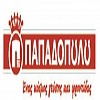











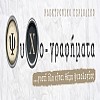







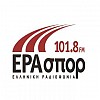
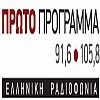




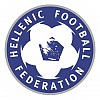
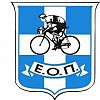

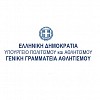



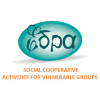
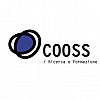





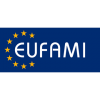
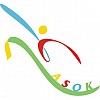

 Co-funded by the
Co-funded by the